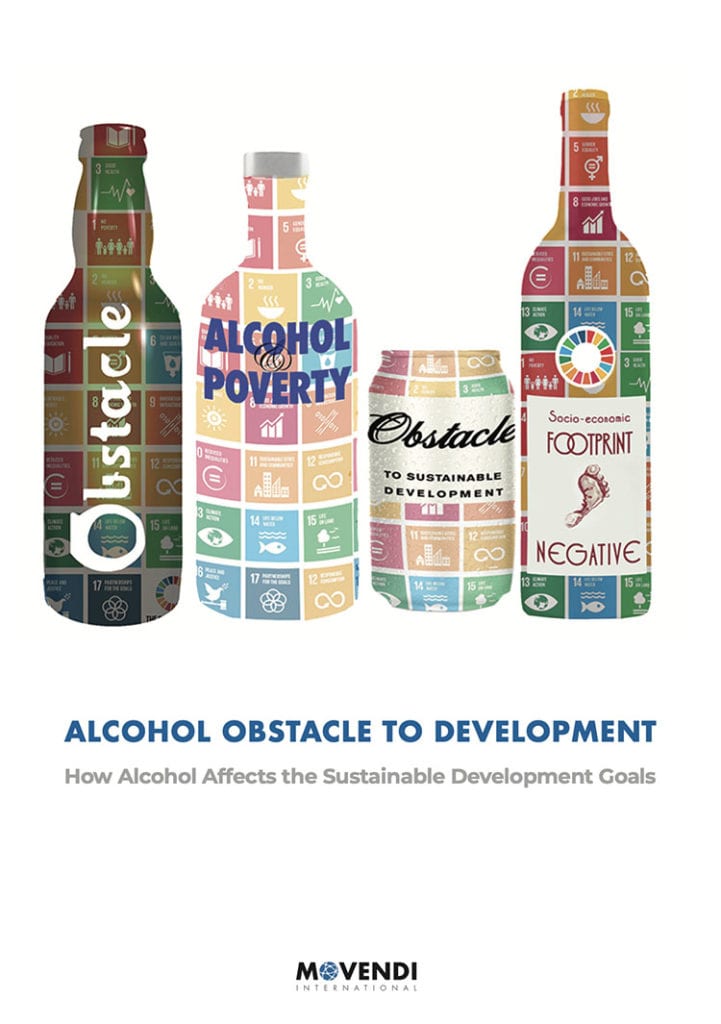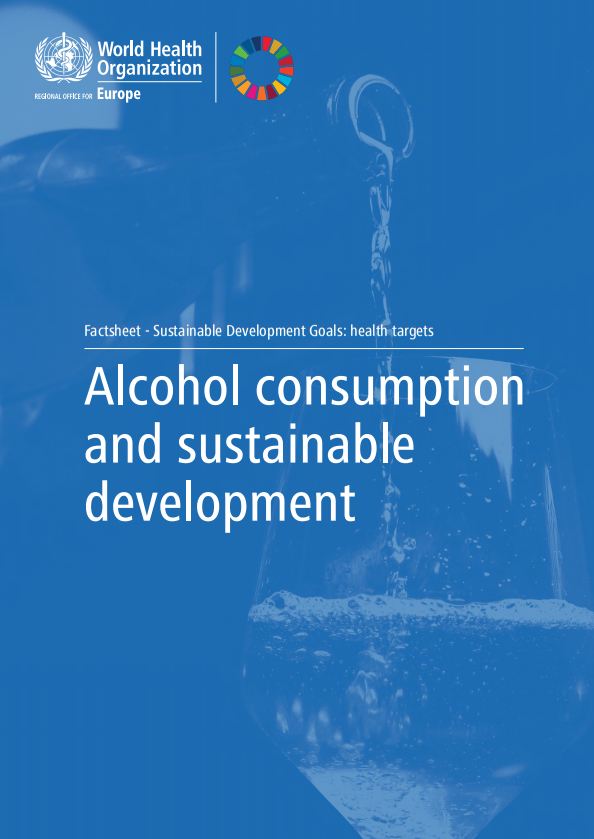The WHO European Region has the highest global level of alcohol consumption – 9.8 liters of pure alcohol per adult (15 years and older) per year against the backdrop of a global average of 6.4 liters. Alcohol causes over 200 health conditions (diseases and injuries) and in the WHO European Region alone, alcohol use leads to almost one million deaths each year or about 2500 deaths every day. As well as having devastating impacts on communities, societal impacts include increased health-care and community costs, strained health services capacity and productivity losses.
According to the new WHO factsheet, “Alcohol consumption and sustainable development”, current alcohol consumption levels in the Region and worldwide adversely impact 13 SDGs and a total of 52 targets in all three dimensions of the UN 2030 Agenda (economic, social and environmental).
Impacts affect a range of health-related indicators, such as child health, infectious diseases and road injuries as well as broader indicators related to economic and social development, environment and equality.
WHO proposes a package of alcohol policy solutions that are still underused in the Region, and highlights positive examples of Member States’ experience.
Alcohol use damages families, communities and wider society across the European Region. The good news is that we know, how to prevent these health risks,” said Dr. Nino Berdzuli, Director, Division of Country Health programmes, WHO Regional Office for Europe as per WHO Europe website.
WHO and the Member States have already backed some really effective measures that can reduce alcohol consumption levels. To succeed now, we need stronger political support and commitment.”
Dr. Nino Berdzuli, Director, Division of Country Health programmes, WHO Regional Office for Europe
Alongside the factsheet WHO Europe contributed a range of scientific publications to the special issue of the International Journal of Environmental Research and Public Health (IJERPH) “Alcohol Control Policy and Health in Europe” (edited by Drs. Antoni Gual, Hospital Clinic Barcelona and Jürgen Rehm, Centre of Addiction and Mental Health (CAMH),Toronto). The special issue covers broad reviews of the state of alcohol policy implementation in the region and in-depth analysis on how the region is on track to reaching 10% reduction in per capita alcohol use in 10 years thanks to the substantial action taken by certain countries to reduce their alcohol consumption levels. Analysis of the action taken by Lithuania and Russia shows that alcohol consumption can be reduced drastically, thereby improving health of people by implementing WHO recommended alcohol policy best buy solutions.
WHO’s European Programme of Work (EPW) 2020-2025 also includes taking action to reduce non-communicable disease (NCD) in the region by preventing risk factors of which alcohol plays a major role.
Alcohol obstacle to development
Movendi International has illustrated the growing evidence that alcohol is an obstacle to 14 of the 17 sustainable development goals (SDGs) and 54 targets in the report “Alcohol Obstacle to Development“.
Alcohol kills 3 million people worldwide every year. Every ten seconds a human being dies because of alcohol.
Mortality resulting from alcohol use is higher than that caused by diseases such as tuberculosis, HIV/AIDS and diabetes.
Alcohol is specifically mentioned in SDG 3 on health and well-being.
Target 3.5 reads:
Strengthen the prevention and treatment of substance abuse, including narcotic drug abuse and harmful use of alcohol.
Agenda 2030
Evidence shows that alcohol is a cross-cutting risk factor in many areas of the 2030 Agenda, such as:
- Eradicating poverty;
- Ending hunger;
- Ensuring healthy lives for all;
- Ensuring quality education;
- Achieving gender equality;
- Ensuring drinking water for all;
- Promoting decent work and inclusive, sustainable economic growth for all;
- Reducing inequalities;
- Making cities safe and inclusive;
- Ensuring sustainable consumption;
- Combating climate change;
- Protecting terrestrial ecosystems;
- Promoting peaceful and inclusive societies; and
- Revitalizing the global partnership for the SDGs.

To free people around the world from poverty, and to achieve the SDGs, it is fundamental to address the role alcohol plays in creating and exacerbating poverty and hindering sustainable development,” says Kristina Sperkova, Movendi International President.
The equation is simple and tells decision-makers what to do: Less alcohol consumption means less alcohol harm, which means less poverty, inequality, exploitation and more sustainable development.”
Kristina Sperkova, Movendi International President

